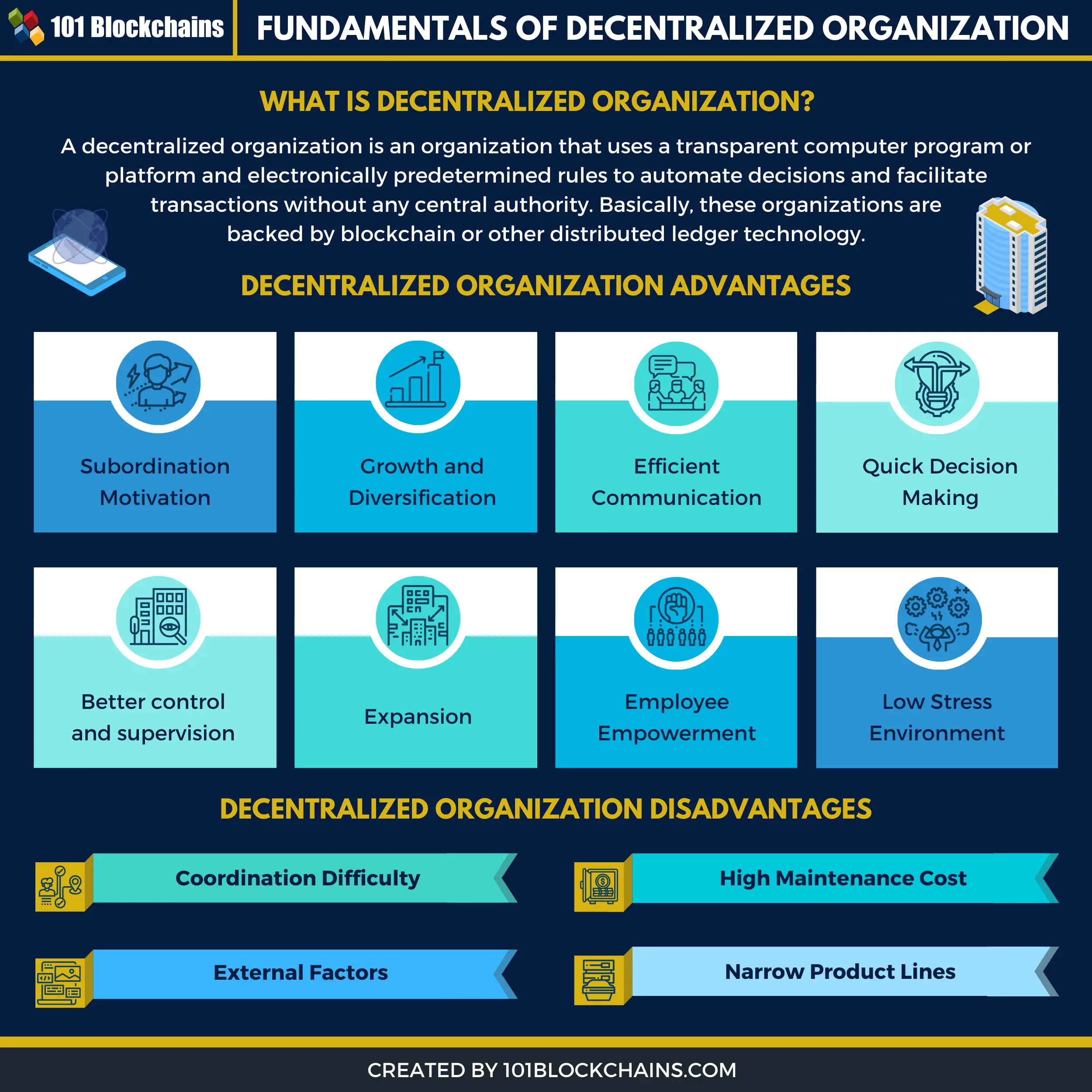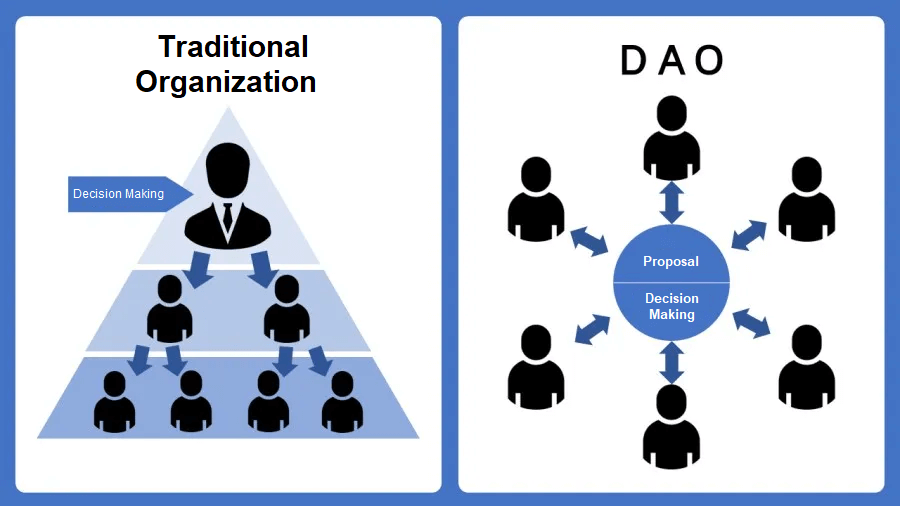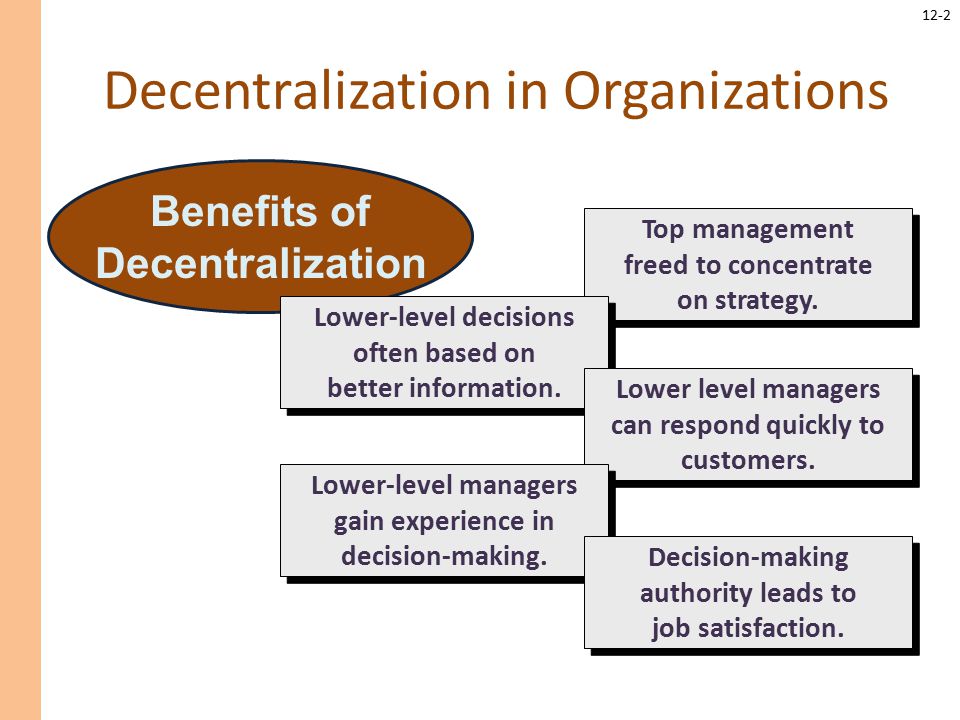What Is The Biggest Benefit Of Decentralized Decision-making

Imagine a bustling marketplace, not of goods, but of ideas. Each vendor, or in this case, each team member, calls out their suggestions, their insights, their unique perspective on the task at hand. No single voice dominates; instead, a vibrant, collaborative symphony emerges, shaping the direction of the entire enterprise. This isn't a utopian fantasy; it's a glimpse into the power of decentralized decision-making, and it's transforming how organizations operate and thrive.
The biggest benefit of decentralized decision-making is its ability to foster agility and adaptability, enabling organizations to respond more quickly and effectively to change. By distributing authority and empowering individuals at all levels, companies can unlock innovation, improve efficiency, and build more resilient, engaged teams.
The Evolution of Authority: A Shift in Power
For decades, the traditional hierarchical model has reigned supreme. Decisions flowed from the top down, with information carefully filtered and controlled. While this approach offered stability and predictability, it often stifled creativity and left lower-level employees feeling disempowered.
The rise of technology, globalization, and increasingly complex markets has challenged this old paradigm. Companies now operate in environments characterized by rapid change and constant disruption, demanding a more flexible and responsive approach. This shift has created a fertile ground for decentralized decision-making to take root and flourish.
Decentralization isn't simply about pushing decisions further down the organizational chart; it's about fundamentally rethinking how power and information are distributed. It's about creating a culture where everyone feels empowered to contribute their expertise and take ownership of their work.
Agility and Adaptability: The Cornerstones of Success
In today's fast-paced world, the ability to adapt quickly to changing circumstances is essential for survival. Decentralized decision-making empowers organizations to do just that. When teams are given the autonomy to make decisions on their own, they can respond to opportunities and challenges more quickly and effectively.
For example, consider a retail company facing a sudden surge in demand for a particular product. In a centralized organization, the request for more inventory would have to travel up the chain of command, be approved by multiple layers of management, and then filter back down to the stores. This process could take days, or even weeks, resulting in lost sales and frustrated customers.
In a decentralized organization, however, the store manager would have the authority to order more inventory directly, without having to wait for approval from headquarters. This allows the company to respond to the surge in demand much more quickly, maximizing sales and maintaining customer satisfaction. According to a study by McKinsey, organizations with decentralized decision-making structures are 17% more likely to outperform their competitors in terms of innovation and speed to market.
Unleashing Innovation and Creativity
Decentralization fosters a culture of innovation by empowering employees to experiment, take risks, and learn from their mistakes. When people feel that their ideas are valued and that they have the freedom to try new things, they are more likely to come up with creative solutions to complex problems.
By breaking down silos and encouraging collaboration across different departments, decentralization can also spark new ideas and perspectives. Diverse teams, empowered to make decisions collectively, can often generate more innovative solutions than individuals working in isolation.
Google, for instance, famously encourages its employees to spend 20% of their time working on projects of their own choosing. This policy, known as "20% time," has led to the development of many of Google's most successful products, including Gmail and AdSense. This demonstrates the power of giving employees the freedom to explore their own ideas and pursue their passions.
Boosting Efficiency and Productivity
Decentralized decision-making can also lead to significant improvements in efficiency and productivity. By empowering employees to make decisions on their own, organizations can eliminate bottlenecks and streamline processes. This frees up managers to focus on more strategic tasks, such as developing new products and services.
When employees feel that they have a say in how their work is done, they are more likely to be engaged and motivated. This can lead to increased productivity, lower absenteeism, and reduced employee turnover.
Studies have shown that companies with decentralized decision-making structures have higher levels of employee satisfaction and engagement. According to a Gallup poll, employees who feel that their opinions are valued are 27% more likely to be engaged in their work.
Building Resilient and Engaged Teams
Decentralization helps to build more resilient and engaged teams by fostering a sense of ownership and accountability. When employees are given the authority to make decisions, they are more likely to take responsibility for the outcomes. This can lead to a stronger sense of commitment and a greater willingness to go the extra mile.
By creating a more collaborative and empowering work environment, decentralization can also improve team morale and reduce conflict. When team members feel that they are all working towards a common goal and that their contributions are valued, they are more likely to support each other and work together effectively.
This fosters psychological safety within teams which, according to research by Harvard Business School professor Amy Edmondson, is crucial for high-performing teams.
Challenges and Considerations
While decentralization offers many benefits, it's important to acknowledge that it's not a one-size-fits-all solution. There are certain challenges and considerations that organizations need to take into account before implementing a decentralized decision-making model.
One of the biggest challenges is ensuring that employees have the skills and knowledge they need to make informed decisions. This may require investing in training and development programs to equip employees with the necessary expertise. It's also essential to establish clear guidelines and boundaries to ensure that decisions are aligned with the overall goals of the organization.
Another challenge is maintaining consistency and coordination across different teams and departments. This may require establishing clear communication channels and implementing standardized processes. It's also important to foster a culture of collaboration and trust, where team members feel comfortable sharing information and seeking help from each other.
A Path Forward: Embracing the Power of Distributed Leadership
Decentralized decision-making is not just a trend; it's a fundamental shift in the way organizations operate. By empowering employees at all levels and distributing authority more widely, companies can unlock innovation, improve efficiency, and build more resilient, engaged teams. While it requires careful planning and execution, the potential rewards are significant.
As organizations navigate an increasingly complex and dynamic world, the ability to adapt quickly and effectively will be crucial for success. Decentralized decision-making provides a powerful framework for achieving this goal, empowering organizations to thrive in the face of change.
The future of work is decentralized. The time to embrace this shift is now, to build organizations that are not just efficient and productive, but also innovative, resilient, and deeply human.


















